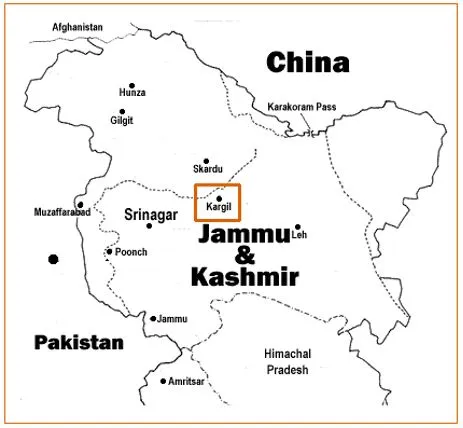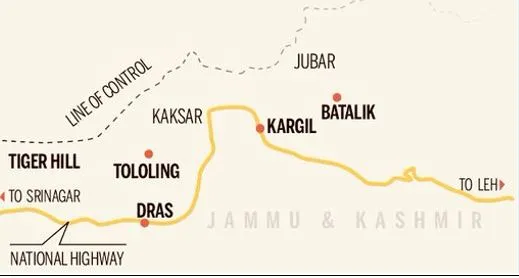

27th July 2024 (11 Topics)
Context
July 26, 2024, marks the 25th anniversary of Kargil Vijay Diwas, a day dedicated to honoring the valor and sacrifices of Indian soldiers during the Kargil War of 1999. This significant day commemorates the successful culmination of Operation Vijay and pays tribute to the nearly 490 Indian soldiers who gave their lives in the conflict.
About the Kargil War
- The Kargil War stemmed from the ongoing tensions between India and Pakistan, which had escalated after the 1971 war that led to the creation of Bangladesh.
- Both countries continued to clash, with disputes over the Siachen Glacier and nuclear tests in 1998 increasing hostilities.
- In February 1999, India and Pakistan signed the Lahore Declaration to resolve tensions and seek peace.
- Despite this, in May 1999, Pakistani soldiers and militants infiltrated Indian territory along the Line of Control (LoC) in Kargil, aiming to sever the link between Kashmir and Ladakh and create unrest.
- Operation Vijay: The infiltration led India to launch Operation Vijay to reclaim the occupied positions. The conflict, lasting from May to July 1999, involved fierce battles in the challenging mountainous terrain of Kargil.
- The Indian Army successfully recaptured key positions, including Tiger Hill, after intense fighting.
- The war concluded on July 26, 1999, with India regaining control of the territory. Nearly 490 Indian soldiers were martyred in the conflict.
- In response to this, the government established the Kargil Review Committee (KRC), which was tasked with recommending measures to avert future crises. One significant recommendation was to reduce the age profile of the Indian armed forces, a notion that had also been proposed by the Arun Singh Committee in 1989.
- The call for a younger military profile gained momentum with subsequent recommendations from the Standing Committee on Defence (2006) and the Shekatkar Committee (2017).
- The Agnipath scheme, introduced to address these expert recommendations, allows young recruits to serve in the Indian Armed Forces for a period of four years. This initiative aims to bring a fresh influx of 'josh and jazba' (enthusiasm and spirit) into the military, while also fostering a shift towards a more technically adept force.


Fact Box: Major military actions and operations undertaken by India after independence
|
More Articles


